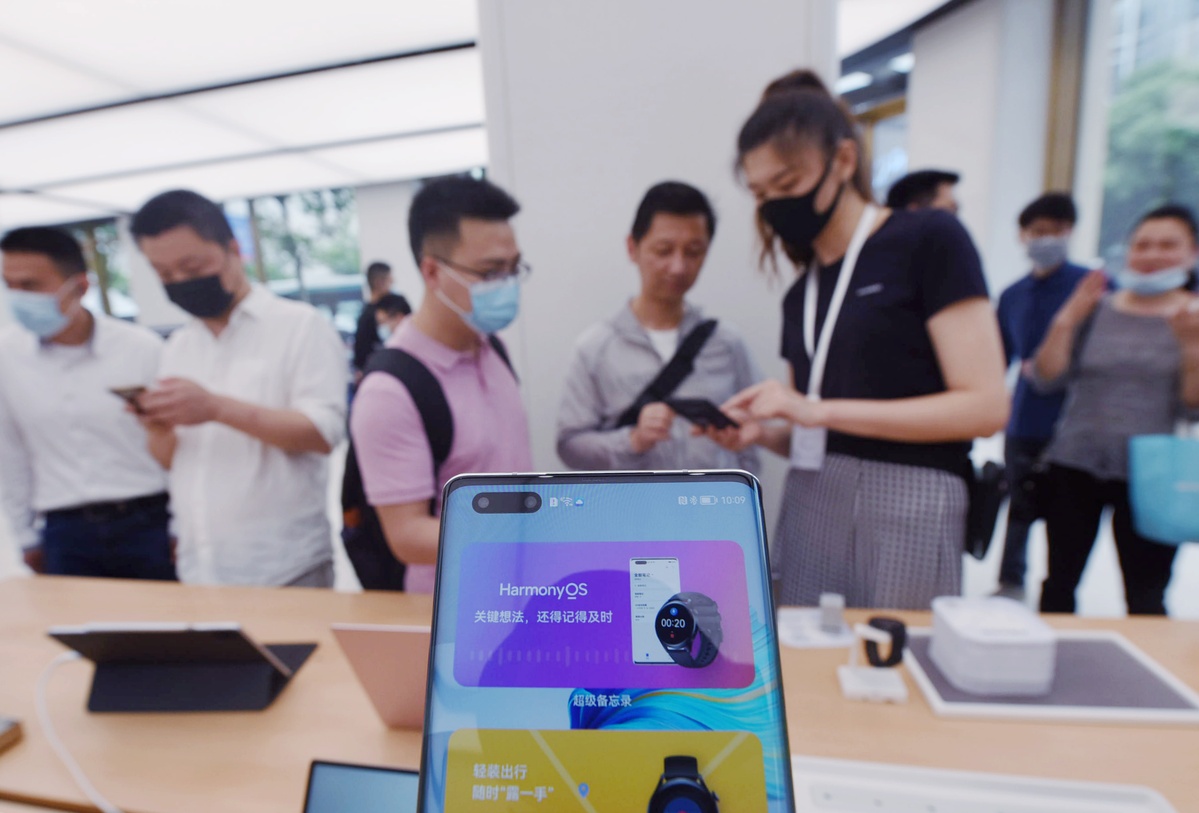Huawei steps up push to popularize HarmonyOS


Huawei Technologies Co is stepping up push to promote its self-developed operating system HarmonyOS, driven by mounting enthusiasm for the OS from partners and consumers.
As of Friday, HarmonyOS smartphone users have exceeded 50 million, Huawei said. It launched the latest version of its OS, Harmony-OS 2, in June for the internet of things devices, including smartphones, tablets and smartwatches.
That marked a crucial step for Huawei, which had prepared for its transition from Google's Android operating system to HarmonyOS for a long time after the US government restricted its access to Google software and services in 2019.
At the start of July, Huawei said there were more than 30 million users of HarmonyOS. Stated differently, every second, eight users upgrade the OS of their older models of Huawei smartphones on average, replacing Android with HarmonyOS.
Zhang Wentao, a Beijing-based bank employee who recently upgraded the software of his Mate 30 smartphone to HarmonyOS, said the new OS offers a very smooth experience across his phone and Huawei tablet.
Huawei said earlier it expected the number of devices equipped with HarmonyOS to reach 300 million by the end of this year, including more than 200 million Huawei devices, with the rest coming from third-party companies' equipment.
More than 20 of Huawei smartphone models support the HarmonyOS system. In terms of ecosystem, more than 300 partners, including home appliance maker Midea, artificial intelligence company iFlytek and cookware company Supor have embraced the HarmonyOS.
Huawei expected that more than 40 mainstream brands will become new partners of HarmonyOS by the end of this year.
Wang Chenglu, president of the software department at Huawei's consumer business group, said earlier that the short-term market share goal for HarmonyOS' ecosystem is 16 percent.
"Sixteen percent is a threshold for an operating system's ecosystem to develop prosperously. It is a threshold that Huawei must pass," Wang said.
Yin Dong, a Beijing-based software developer who has been using tools from HarmonyOS to develop mobile applications for months, said he is very optimistic about the operating system's future.
"It is very convenient to develop applications for cross-device experiences based on HarmonyOS, which is designed for IoT devices including watches, TVs, cars and even ovens, and enables them to easily connect with each other and deliver new functions," Yin said.



































